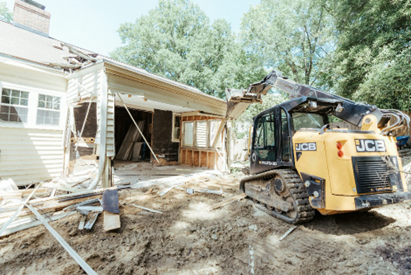
In today's fast-paced world, the construction industry is undergoing a massive transformation driven by technology. Contractors who once relied on manual processes for planning, scheduling, and executing their projects now have access to tools that make their work more efficient, reliable, and accurate.
As a result, contractors are finding it easier to navigate daily operations, streamline workflows, and ultimately deliver better results. From managing schedules to staying on top of budgets, technology has paved the way for more productive operations in the construction sector.
Project management is one of the most critical aspects of a contractor's day-to-day activities. With multiple moving parts – from coordinating with vendors to tracking team progress – the ability to manage projects efficiently can make or break a construction endeavor. Technological advancements have made it possible for contractors to handle these responsibilities without being overwhelmed.
Digital project management tools allow contractors to track milestones, assign tasks, and monitor the overall progress of their projects. This software offers a centralized platform where all necessary documents, schedules, and communication can be stored and easily accessed by all team members. For contractors who may be handling multiple projects at once, this accessibility significantly reduces the risk of miscommunication or mismanagement.
One standout feature that has revolutionized project management is scheduling software for contractors by Hearth. The software simplifies the scheduling process, allowing contractors to stay ahead of their projects and minimize downtime.
By offering an intuitive interface that's easy to navigate, Hearth's scheduling tool keeps all necessary information in one place and supports real-time updates, which helps maintain smooth operations. Integrating scheduling software can make contractors more organized, keep projects on track, and improve overall efficiency.
One of the most challenging aspects of contracting is managing the financial side of operations. Contractors need to provide accurate cost estimates to clients, track expenses throughout the project, and maintain a balance between profit and expenses.
With the myriad challenges contractors face, including accurate cost estimation and invoicing, adopting advancements like an HVAC contractor estimate app can streamline processes considerably. Joist's comprehensive HVAC estimating and invoicing software is one such solution, enabling contractors to quickly create professional estimates and invoices. This ease of access not only improves workflow but can significantly enhance a contractor's professionalism and bottom line.
Manual methods of estimation and budgeting often lead to errors, delays, and sometimes loss of profit. Technology has stepped in to change this narrative, providing software solutions that make budgeting an accurate and straightforward process.
One of the key challenges contractors face on a daily basis is effective communication, especially when working across various job sites or teams. Before the advent of technology, phone calls, in-person meetings, and written notes were the main forms of communication, often leading to misinterpretation, missed messages, or inefficiencies in relaying information.
Now, contractors can update schedules in real time, check the status of various project components, and immediately address issues as they arise. The availability of this kind of technology reduces the need for constant physical meetings, saving both time and resources. Contractors can also take advantage of automatic customer reminders through text or email within the scheduling software, improving efficiency and project oversight.
Safety is a top priority for contractors, and technology plays a vital role in maintaining a safe working environment. Compliance with safety regulations and standards is crucial for protecting workers and preventing costly accidents or project delays. With the assistance of technological tools, contractors can now effectively manage safety protocols and compliance in their daily operations.
Drones are another emerging technology used in construction for safety inspections. Contractors can use drones to inspect hard-to-reach areas, reducing the need for workers to put themselves in potentially dangerous situations. They provide aerial views of job sites, making it easier to identify potential hazards or areas needing attention without halting the project. Using this technology improves safety and also increases efficiency and productivity.
Resource and inventory management are crucial in ensuring the timely completion of a project. Tracking materials, equipment, and labor manually can be time-consuming and prone to errors. Incorporating process improvement software can further enhance operational efficiency by automating workflows, identifying bottlenecks, and optimizing resource allocation. Thanks to technological advancements, contractors now have access to online inventory management platforms that simplify the process of tracking resources and supplies.
In terms of equipment management, GPS tracking systems and equipment management tools help contractors track the usage, location, and maintenance schedules of their machinery. By understanding where their equipment is and how it's being used, contractors can make informed decisions about reallocating resources, scheduling maintenance, and ensuring their equipment is always in good working condition.
The construction industry is embracing technology, and contractors who adopt these advancements are finding it easier to manage their operations, improve project outcomes, and deliver better results to their clients. From scheduling and project management to budgeting and safety, technology offers tools and solutions that make a contractor's daily life simpler and more efficient.
For those contractors looking to stay ahead of the curve, investing time in understanding and utilizing these technologies can have a significant impact on their business.